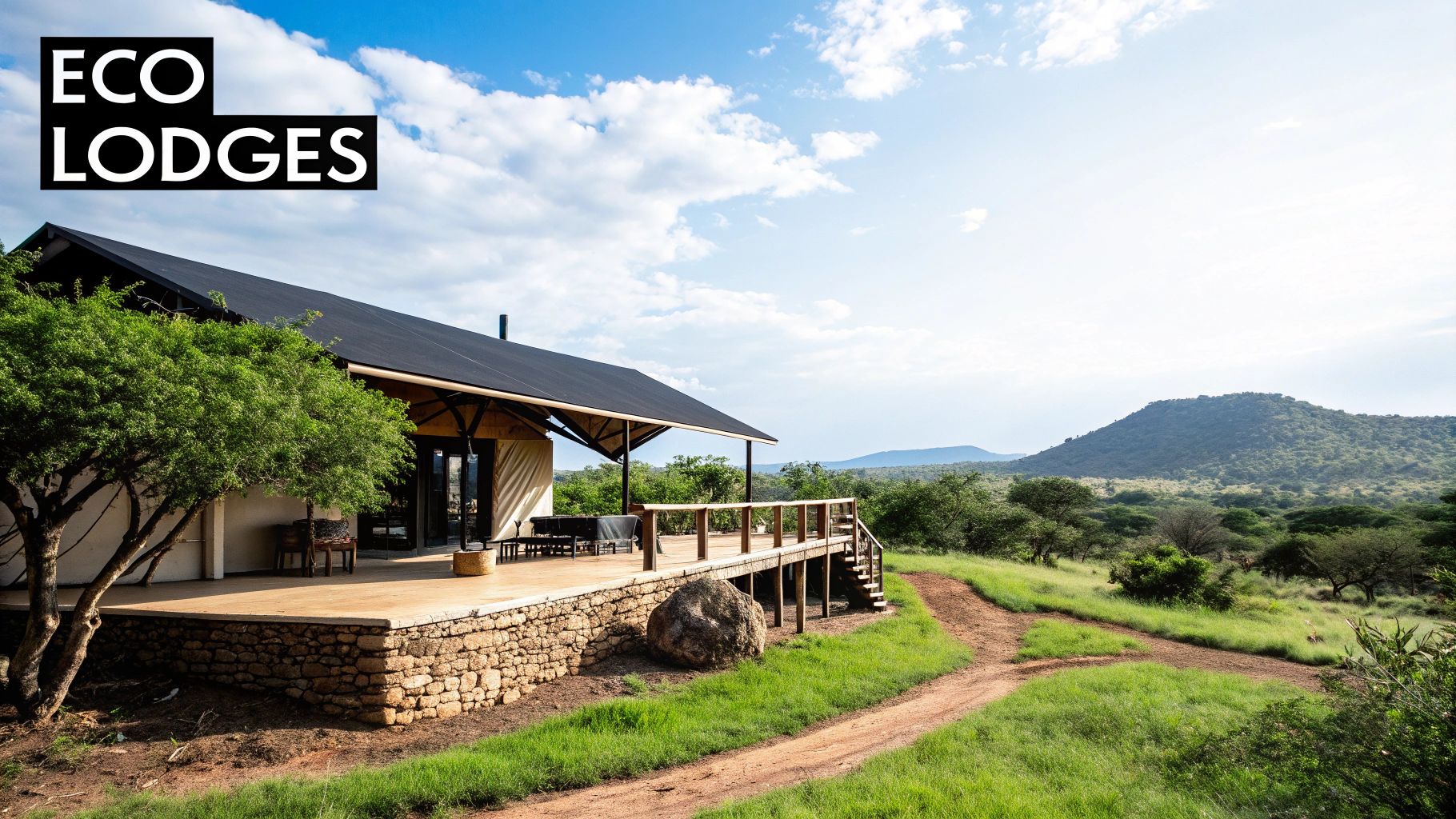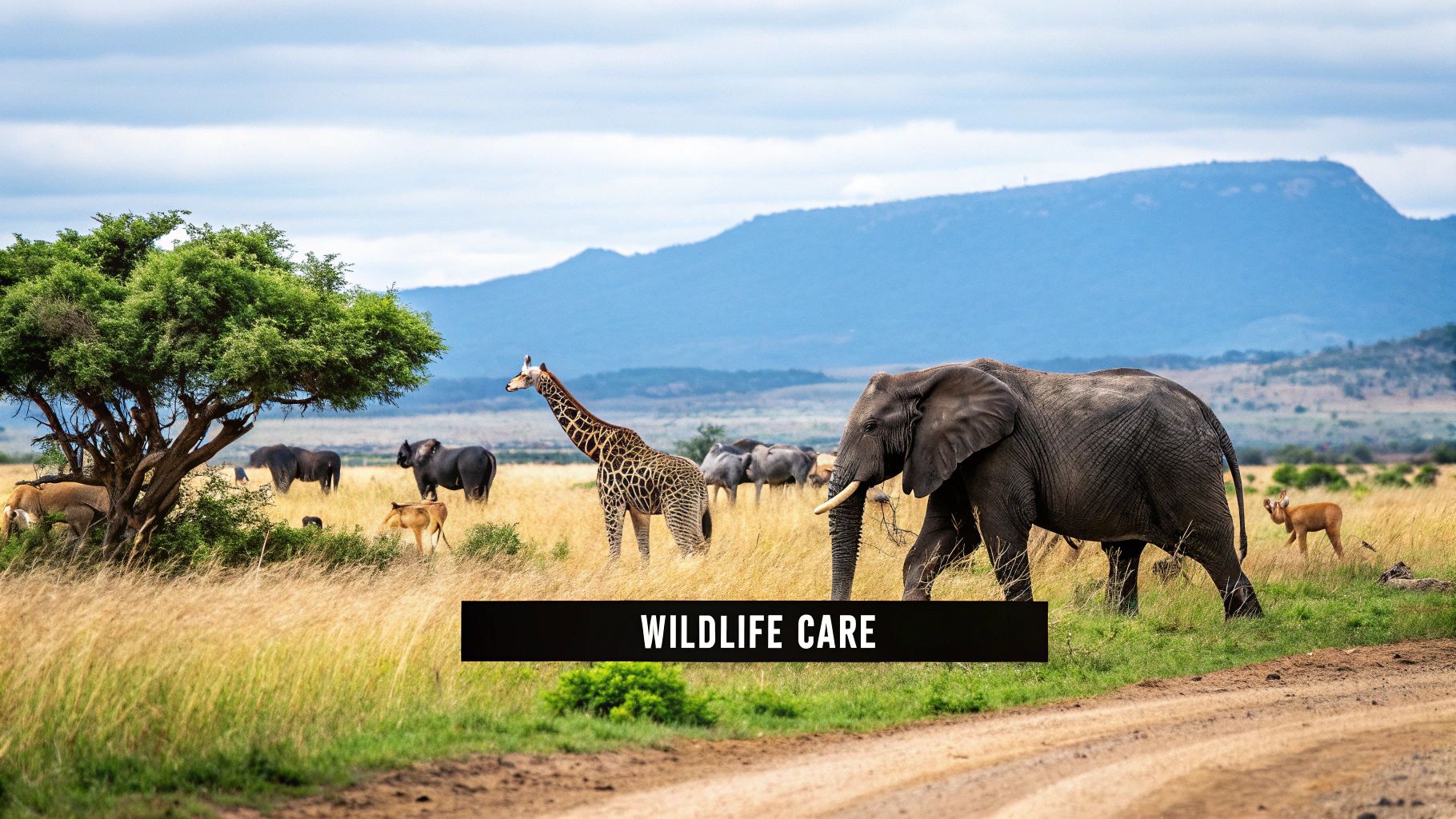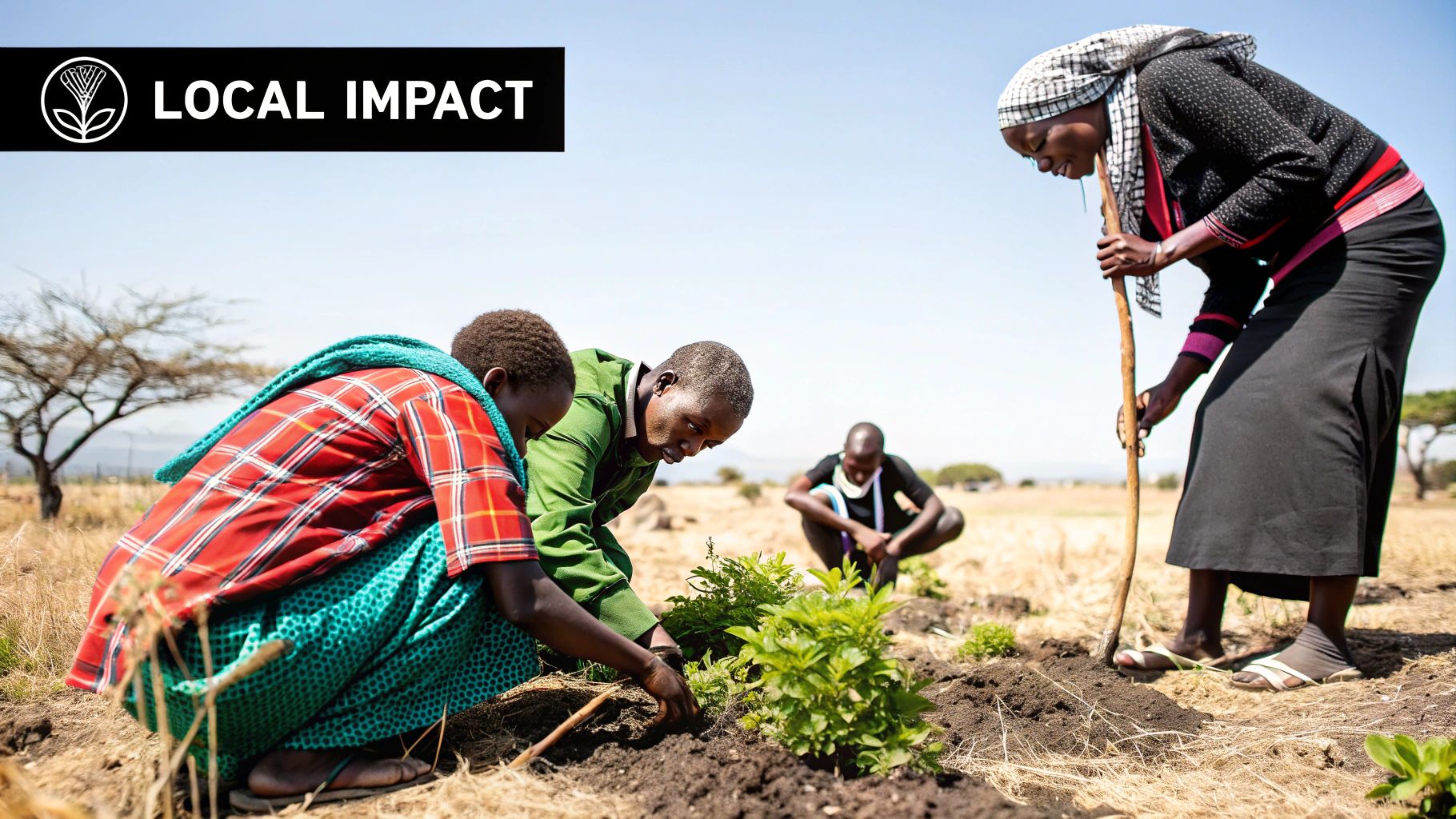Table of contents [Show]
Beyond the Ordinary: What Makes a Safari Truly Sustainable

A truly sustainable safari delves deeper than just observing wildlife. It's about a commitment to environmental protection, empowering local communities, and preserving cultural heritage. This ensures tourism benefits everyone involved, contributing to the long-term well-being of the ecosystem and its inhabitants. This differentiates true eco-tourism from simple "greenwashing."
The Pillars of a Sustainable Safari
Several core principles define a truly sustainable safari. Wildlife protection is crucial, with operators minimizing their impact on animal behavior and habitats.
This can include adhering to strict anti-poaching protocols and employing guides trained in responsible wildlife viewing. It also means supporting ongoing conservation initiatives.
Sustainable safaris also prioritize community empowerment. They provide jobs for locals, source goods and services locally, and respect indigenous cultures and traditions.
Environmental stewardship is another key element. This involves minimizing waste, conserving water and energy, and promoting responsible land management. Sustainable safari lodges often use eco-friendly design elements. These might include solar power, rainwater harvesting, and waste recycling programs. You might be interested in: Our tour sitemap.
Consumers are increasingly looking for experiences that align with their values. Interest in sustainable safaris has grown by over 1,000 percent in the last four years. This shows a shift toward eco-friendly and socially responsible travel. This trend reflects a desire for travel that benefits both the traveler and the destination. Find more detailed statistics here: 2024 Safari Travel Trends.
Not all safaris advertised as "sustainable" genuinely are. It's important for travelers to be discerning. Look for certifications from reputable organizations that verify sustainable practices.
Consider the safari operator’s commitment to the principles discussed above. Do they actively support local communities? Are they transparent about their conservation efforts? These are key questions to consider.
The Positive Impact of Responsible Tourism
Choosing a truly sustainable safari has a significant impact. It helps protect endangered species and preserve vital habitats. It also supports the economic well-being of local communities.
By making informed choices, travelers can contribute to a more sustainable future for wildlife and the planet. This involves supporting responsible operators who prioritize conservation and community well-being over profits. A sustainable safari is not just a trip; it's an investment in our planet’s future.
Community Prosperity: The Real Economics of Ethical Safaris

Sustainable safaris offer travelers an unforgettable adventure. But they also provide something more: a significant boost to the economic well-being of local communities. These ethical operations focus on empowering local people, fostering a more equitable and beneficial approach to tourism. Instead of simply extracting resources, they invest in the future.
Creating Meaningful Employment
Sustainable safaris create jobs, directly contributing to community prosperity. Local people are hired as guides, hospitality staff, and support personnel. This not only provides much-needed income but also builds valuable job skills within the community.
Sustainable safaris also frequently support local businesses. By sourcing goods and services from local vendors, they create a ripple effect of economic growth, boosting the entire area.
Supporting Indigenous Enterprises
Many sustainable safari destinations are located near areas rich in indigenous culture. Ethical safari operators understand the importance of supporting these communities. They often partner with local artisans and craftspeople, creating a market for their unique products.
This partnership helps preserve important cultural heritage. For instance, some safaris allow guests to buy authentic handicrafts directly from local artisans. This guarantees fair prices for the artisans and provides guests with a meaningful cultural exchange.
Transparent Revenue Sharing: A Path To Empowerment
Transparent revenue sharing sets sustainable safaris apart. Traditional models often see profits flowing to outside investors. Ethical operations, however, ensure that a significant portion of revenue directly supports local development projects.
This funding supports vital community needs like education, healthcare, and infrastructure. These investments directly improve the quality of life for residents.
The global safari tourism market is booming, offering opportunities for both traditional and sustainable models. In 2023, the market was valued at USD 34.62 billion. It's expected to grow at a 6.1% CAGR until 2030. Growing demand for sustainable travel is further fueling the expansion of ethical safaris. Learn more about this dynamic market in the Safari Tourism Market Report.
To illustrate the economic impact of sustainable safaris versus traditional safaris, let's examine a comparison table showcasing some key differences.
Economic Benefits of Sustainable Safari Tourism
This table highlights the various economic benefits generated by sustainable safari operations compared to traditional safari models
| Benefit Category | Sustainable Safari Impact | Traditional Safari Impact |
|---|---|---|
| Job Creation | Prioritizes local hiring, skills development | May prioritize outside or non-local staff |
| Local Business Support | Sources goods and services locally | May rely on external suppliers |
| Indigenous Communities | Partners with artisans, preserves cultural heritage | May have limited engagement with local cultures |
| Revenue Sharing | Transparent distribution to community projects | Profits may primarily benefit outside investors |
| Long-Term Investment | Funds education, healthcare, infrastructure | May focus on short-term profit maximization |
As this table illustrates, sustainable safaris focus on community engagement and long-term investment, while traditional models might prioritize external profits over local empowerment.
Investing in the Future: Beyond Tourism
Sustainable safaris look beyond short-term economic gains. They invest in the long-term well-being of communities. By supporting education and healthcare, they empower the next generation. By funding infrastructure development, they create a stronger foundation for local economies. This approach ensures that the positive impact of tourism lasts long after the visitors have departed, creating a brighter and more prosperous future for everyone.

When planned with care, a sustainable safari can be a powerful tool for conservation. This section explores inspiring stories of wildlife recovery, fueled by responsible tourism. These examples show how tourist dollars, when used effectively, can protect endangered species and their habitats.
From Poaching Hotspots to Protected Havens
In many regions, the presence of tourists has significantly reduced poaching. The steady flow of visitors acts as a natural deterrent to illegal hunting. This makes areas previously vulnerable to poachers safer for wildlife.
The revenue generated from sustainable safaris also allows for greater investment in anti-poaching patrols and other security measures. This increased security further strengthens the protection of vulnerable wildlife populations.
For example, some safari operators partner with local communities and law enforcement to create anti-poaching units. These units are specially trained and equipped to protect wildlife, ensuring the survival of threatened species.
Innovative Partnerships for Conservation
Sustainable safari operators frequently collaborate with research organizations. These partnerships lead to innovative conservation strategies, including habitat restoration and species monitoring programs. This collaborative approach maximizes the positive impact on wildlife and their environments.
One example is the use of GPS tracking to monitor animal movements and identify essential habitat areas. This data informs targeted conservation plans. Safari operators also invest in reforestation projects and support initiatives to reduce human-wildlife conflict.
Economic Alternatives to Wildlife Exploitation
Sustainable tourism offers communities alternative income sources. These alternatives replace activities like poaching or the illegal wildlife trade. This shift in economic incentives is crucial for long-term conservation success.
Communities are motivated to protect wildlife when they recognize its value as a tourism asset. Some communities have established community-based conservancies. They manage wildlife and tourism themselves, ensuring both economic and ecological benefits. You might be interested in: Our latest news.
Building Local Advocacy for Conservation
Sustainable safaris cultivate a sense of ownership and pride in local wildlife. This creates strong advocates for conservation within communities. People who benefit directly from tourism are more inclined to protect the resources that support it.
This heightened awareness translates into stronger local support for conservation initiatives. Communities actively participate in protecting their natural heritage. They play a crucial role in ensuring the long-term survival of endangered species.
Tangible Evidence of Positive Impact
These conservation success stories provide concrete proof that sustainable safaris can create meaningful change. By selecting responsible safari experiences, travelers can directly support the protection of endangered species.
These examples show how well-planned tourism can help endangered species recover. They demonstrate the power of responsible travel to create positive change and offer hope for a future where wildlife and communities flourish together.

